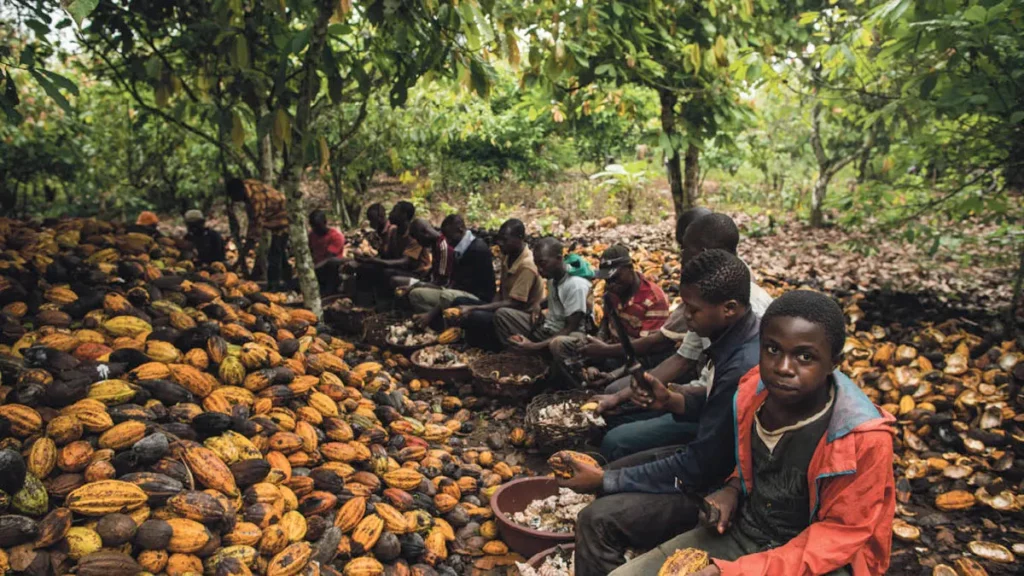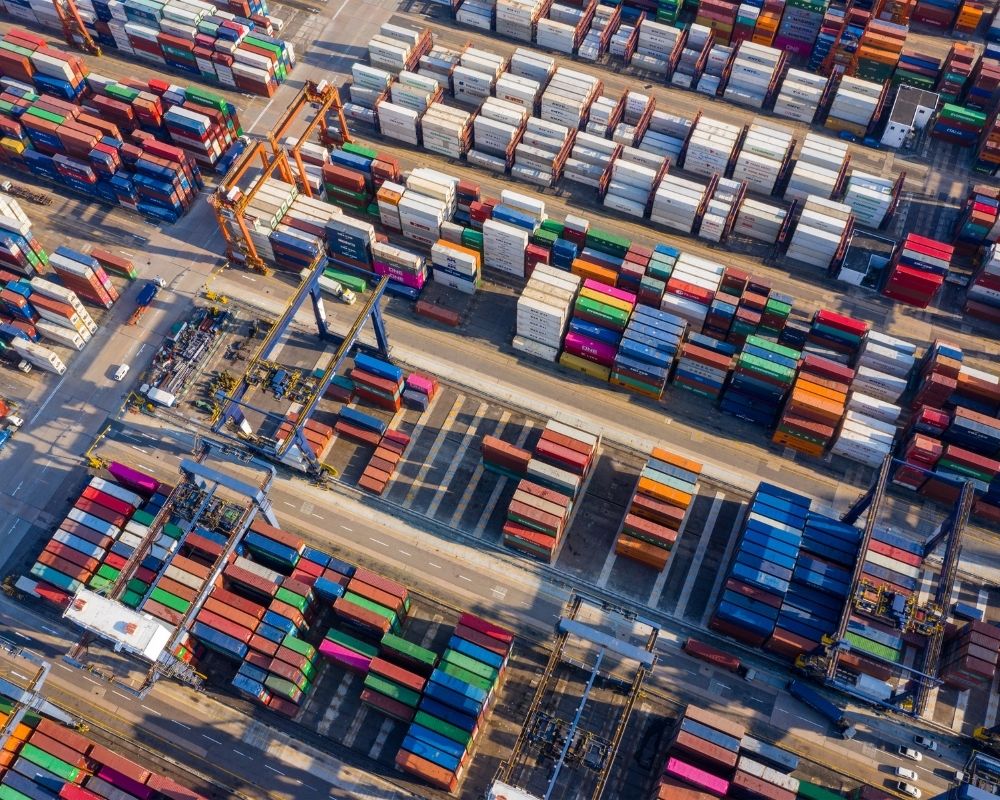Chocolate is one of the most beloved and widely consumed foods in the world. It is a multi-billion-dollar industry, in fact, in 2022, in the US alone, the sales from chocolate broke the sales record of 4.1 Billion USD during Valentine’s Day. However, beneath the surface of this industry lies a darker side that is characterized by exploitation, environmental degradation, and social injustice.
According to the International Labor Rights Forum, child labor and slavery is a significant problems in the chocolate industry, particularly in West Africa and Brazil, which produces over 70% of the world’s cocoa. According to the International Labor Rights Forum. The worst forms of child labor, which include hard labor and exposure to dangerous conditions, are often employed on cocoa farms. The cocoa farms of Western Africa and Brazil supply cocoa to major companies and child trafficking is a common practice by traffickers who seek to exploit the poverty of the region.

The Bureau of International Labor Affairs (ILAB) at the U.S. Department of Labor tasked NORC to survey children aged 5–17 living in agricultural households in the cocoa growing areas of Côte d’Ivoire and Ghana during the 2018–19 cocoa harvest season. The data from 2018–19 survey round show that among children living in agricultural households in cocoa growing areas 45 percent were engaged in child labor and 43 percent were engaged in hazardous child labor in cocoa production in aggregate. The country-specific data indicate that in agricultural households in cocoa growing areas, 38 percent of children in Côte d’Ivoire and 55 percent of children in Ghana were engaged in child labor in cocoa production.
In addition to the exploitation of young children, cocoa farms are also linked to environmental destruction. The farms are often located in remote regions of the world, and the trees that produce cocoa beans are notoriously difficult to cultivate. This means that the farmers must often clear large swaths of land and rainforest in order to establish their plantations, leading to deforestation and soil erosion.
The chocolate industry is also characterized by social injustice. Most cocoa farmers are small-scale producers who earn very little money for their labor. They often sell their cocoa to intermediaries who pay them very little for their crops. This means that the majority of the profits from the chocolate industry go to a few large corporations, rather than to the farmers who actually produce the cocoa.
To address these issues, some chocolate companies have implemented certification schemes that aim to promote fair labor practices and environmental sustainability in the chocolate industry. These certification schemes, such as Fairtrade and Rainforest Alliance, set standards for the production of cocoa and provide incentives for farmers to adopt sustainable practices.
In conclusion, the dark side of the chocolate industry cannot be ignored. It is a complex issue that requires a multi-faceted solution. Consumers can play a role in promoting change by supporting chocolate companies that are committed to fair labor practices and environmental sustainability. By doing so, we can help to create a more just and sustainable chocolate industry that benefits everyone, from cocoa farmers to chocolate lovers.
But chocolatiers and other businesses that involve chocolate as an ingredient also need to do more to be transparent in showing their Fair Trade practice and other efforts that they did to be socially good and sustainable. Gratitude can enable that. Gratitude enables businesses to become transparent by being powered by blockchain technology, with easy-to-use tools to record their supply chain, narrate the story, verify on blockchain and present the data in a beautiful landing page that can be issued via Gratitude’s QR Code or URL that can be placed on a physical product or embedded on digital marketing campaign. Customers can then simply scan the QR codes placed on the product or click the link on a digital campaign and clearly see the product’s journey, verify sustainability claims, or any supply chain data that the company wants to reveal to the customer.
Begin your business’ true transparency journey by implementing Gratitude to unlock the hidden value of your supply chain data. Talk to our representatives via the following channels for support or assistance in implementation:
Website : https://more-gratitude.com
Linkedin : https://www.linkedin.com/company/more-gratitude
Instagram : https://www.instagram.com/more_gratitude/
Facebook : https://www.facebook.com/followgratitude



